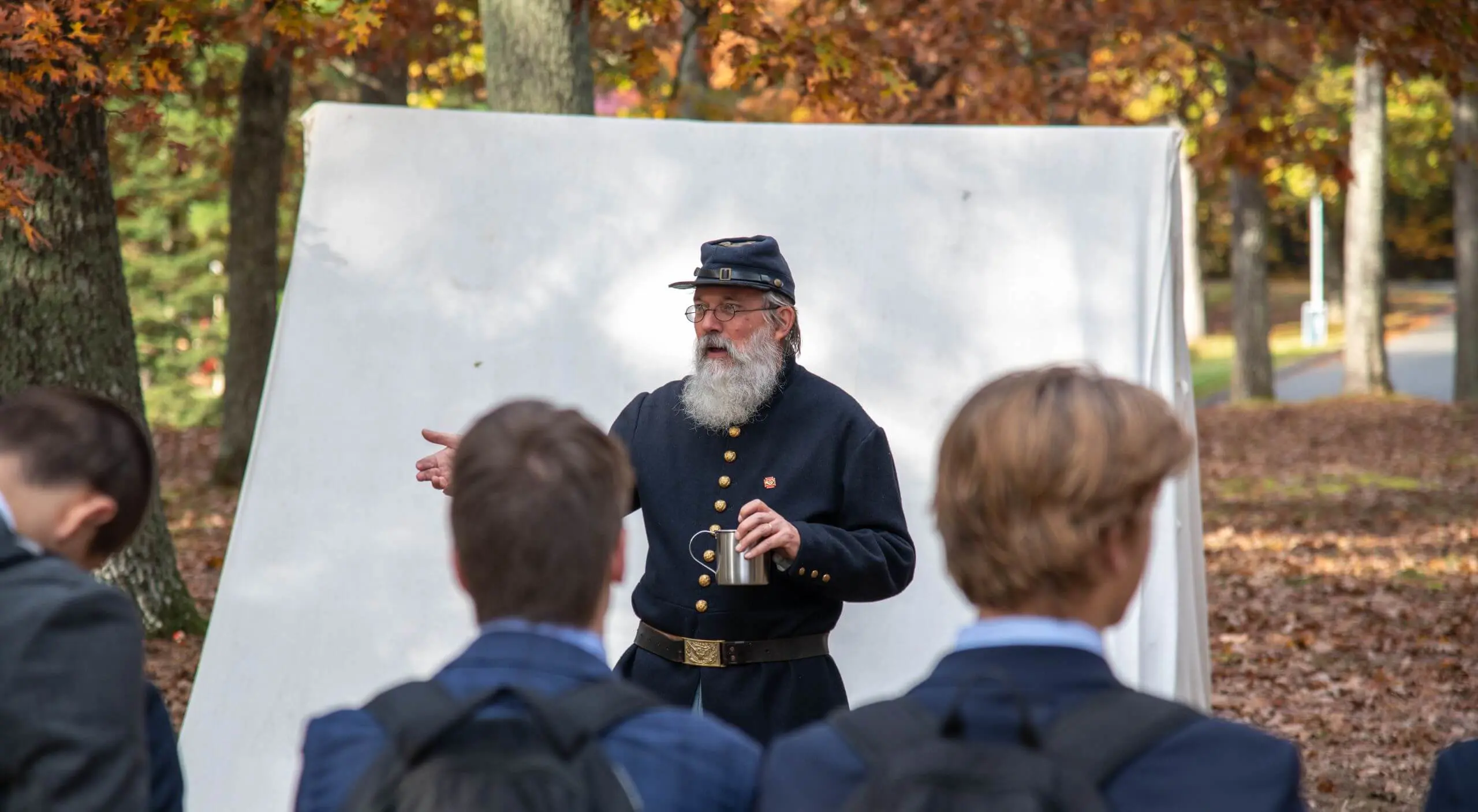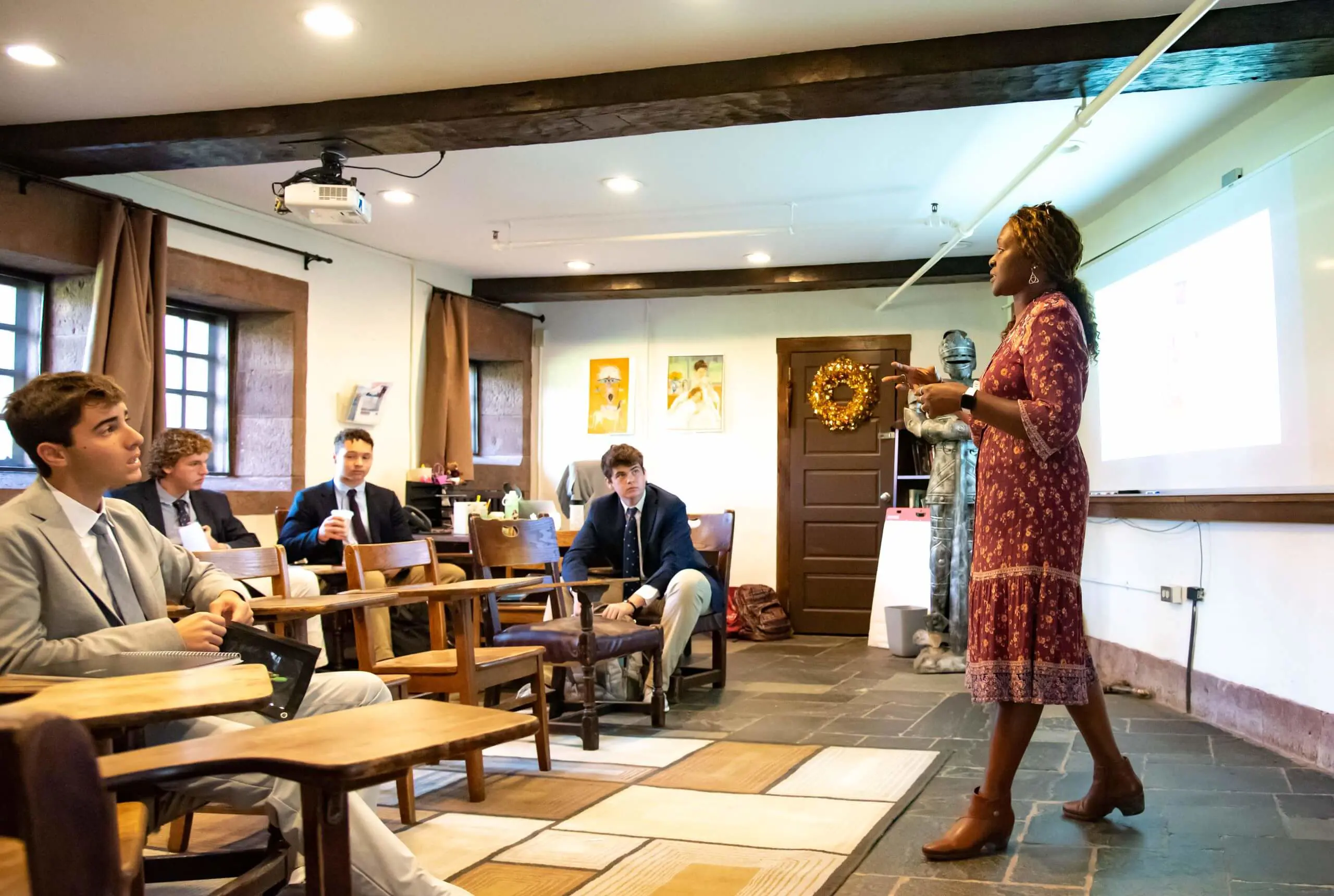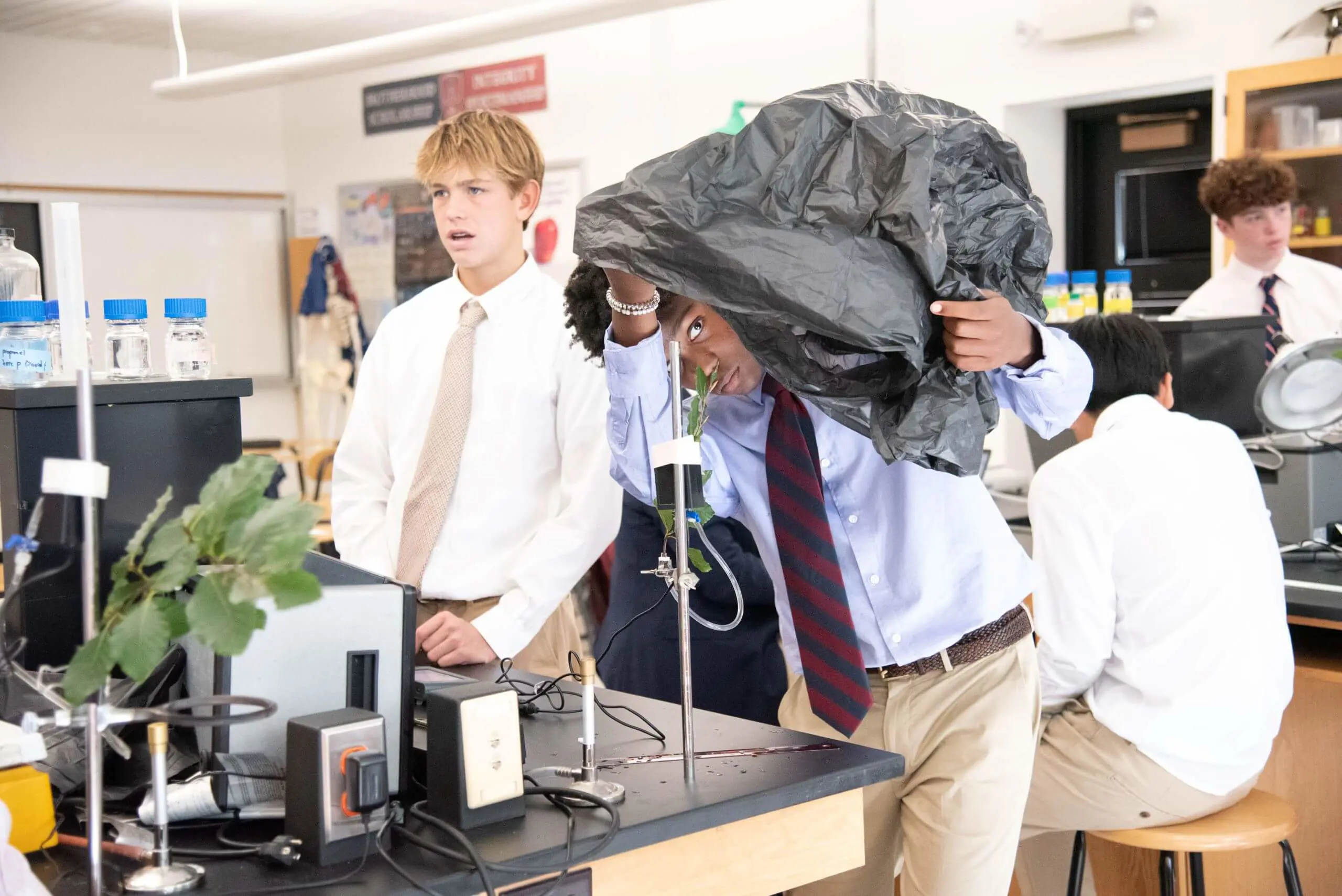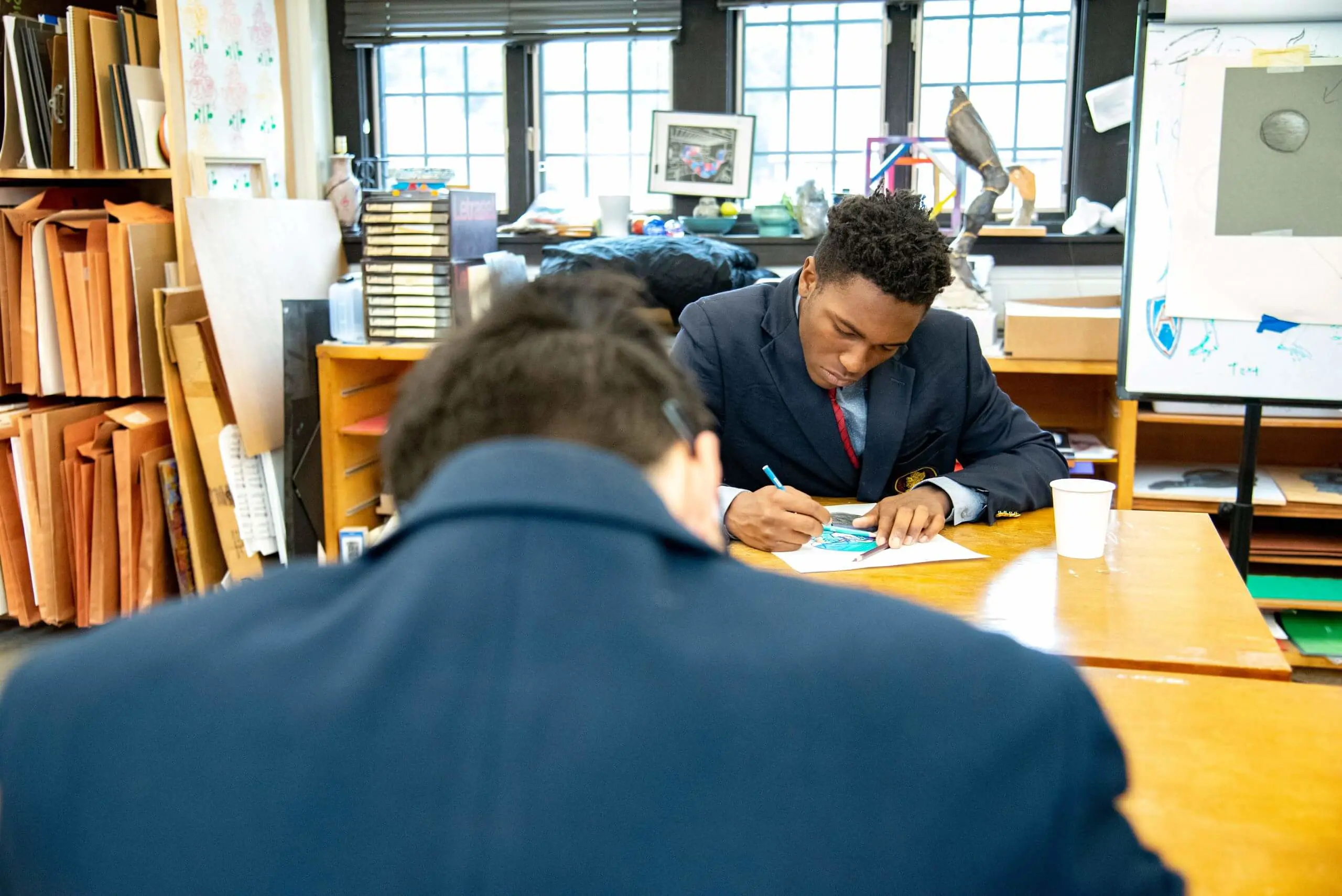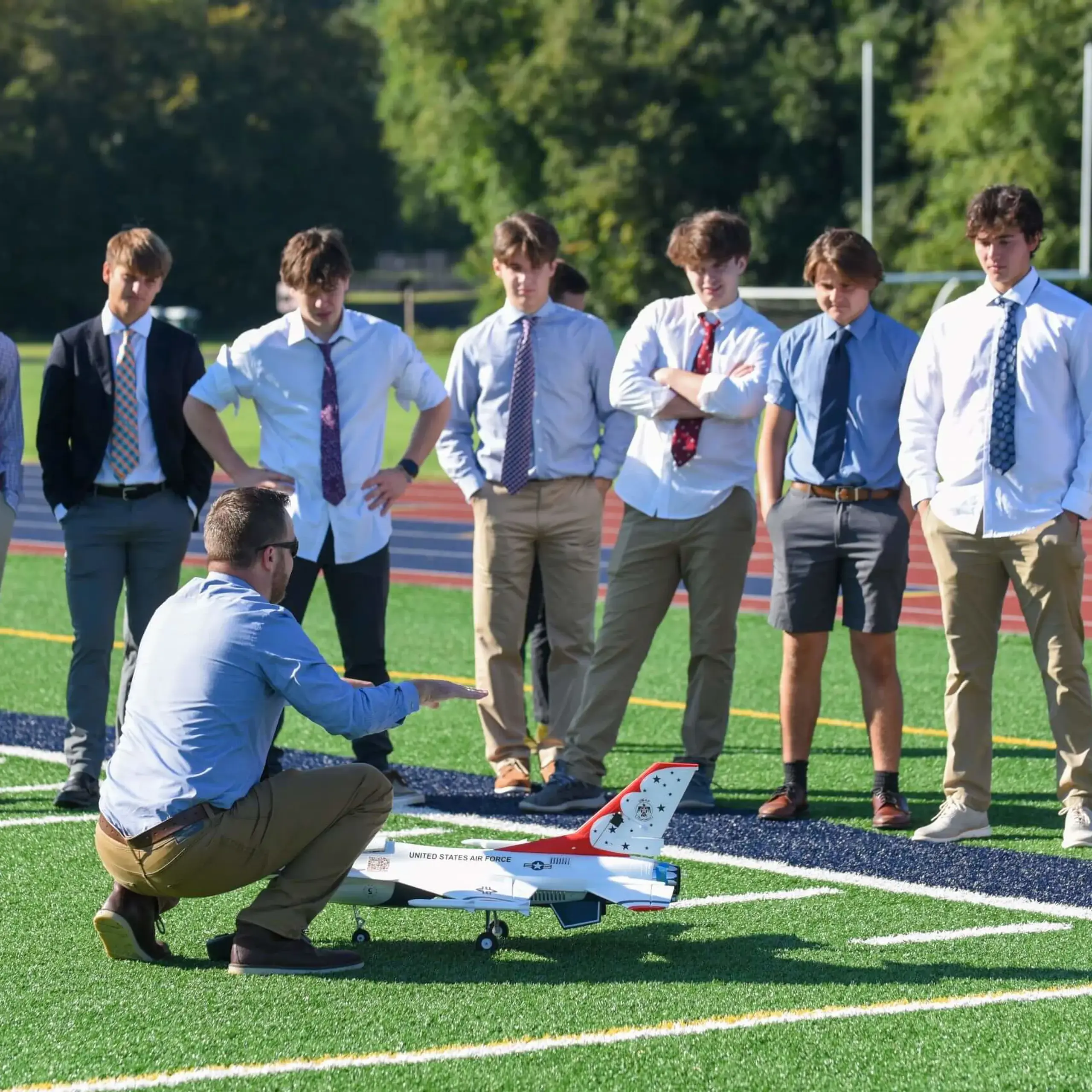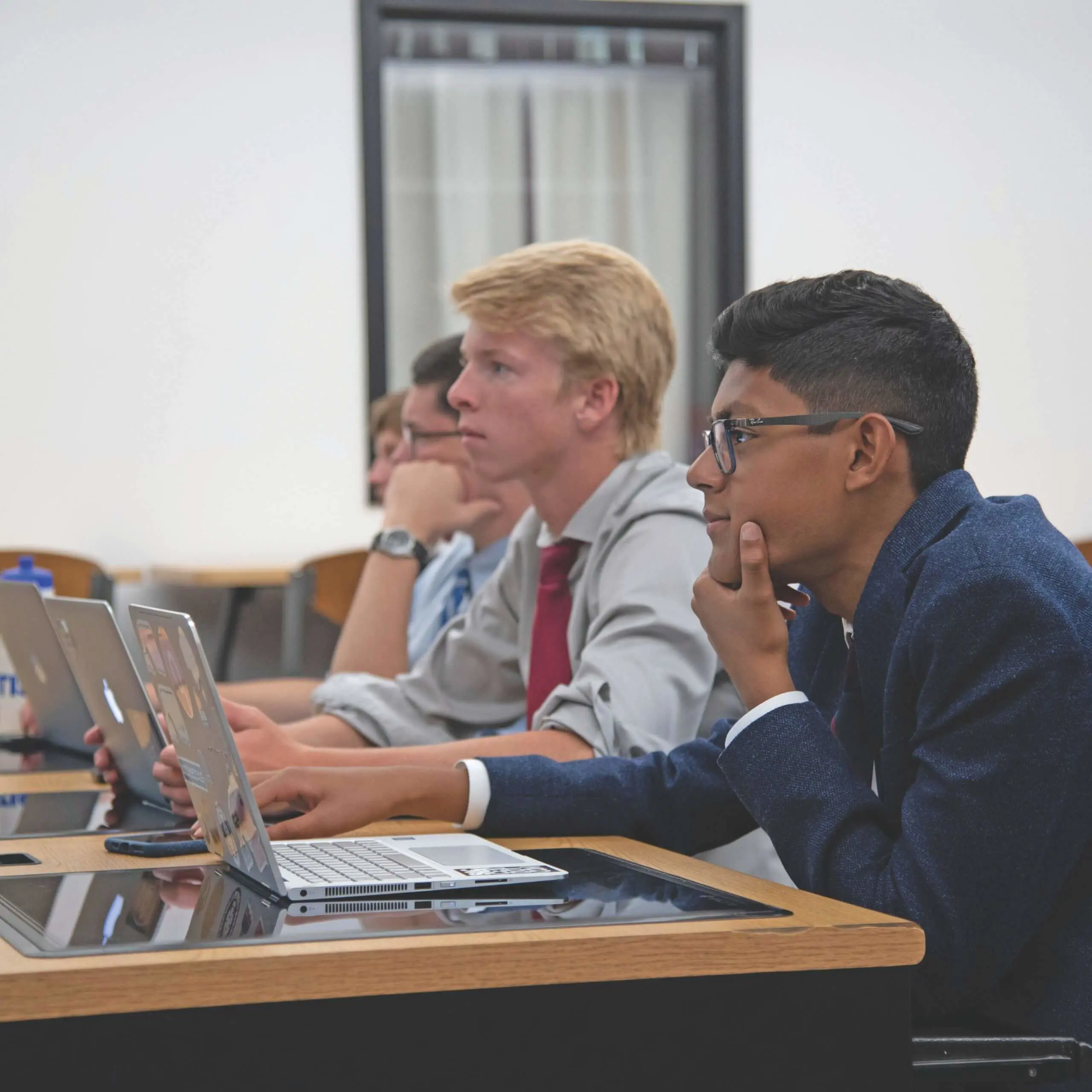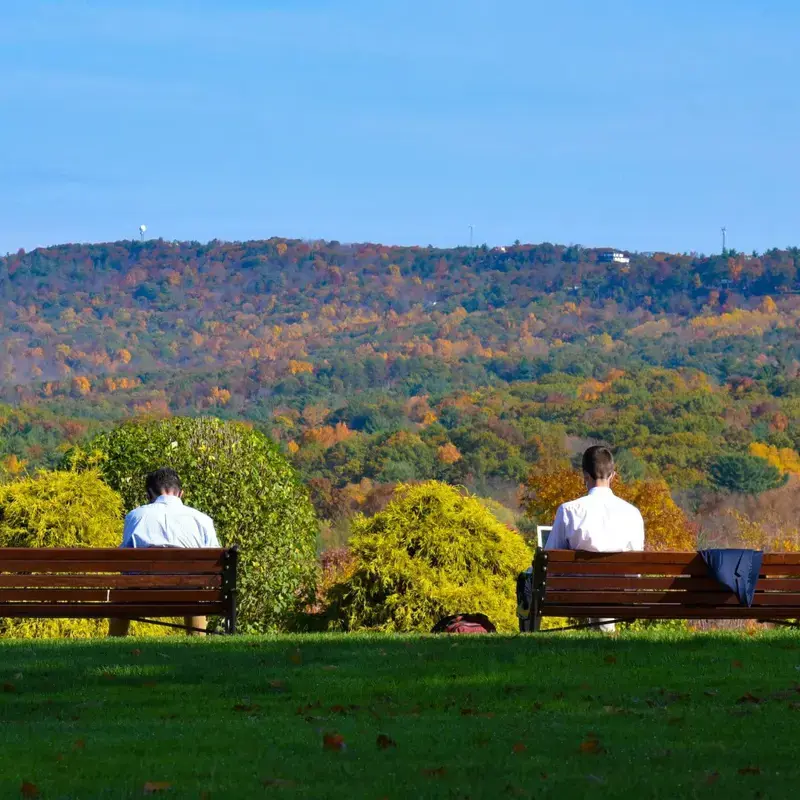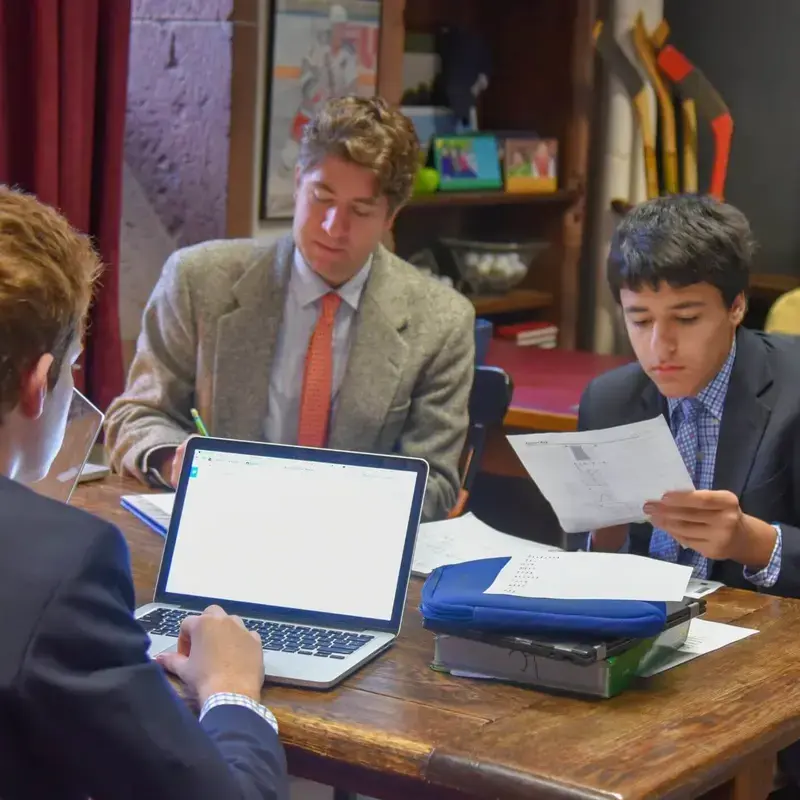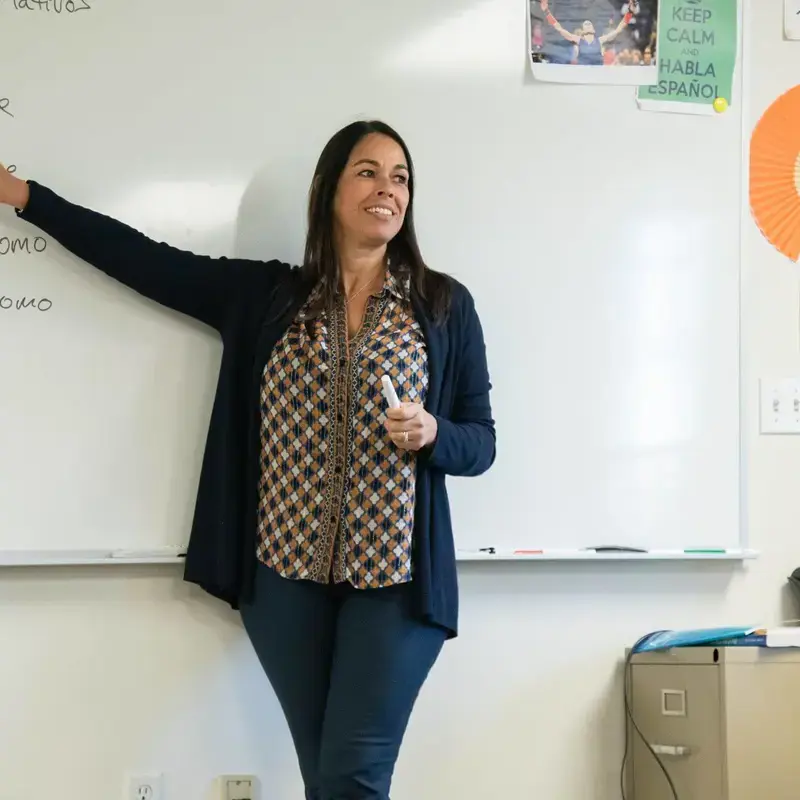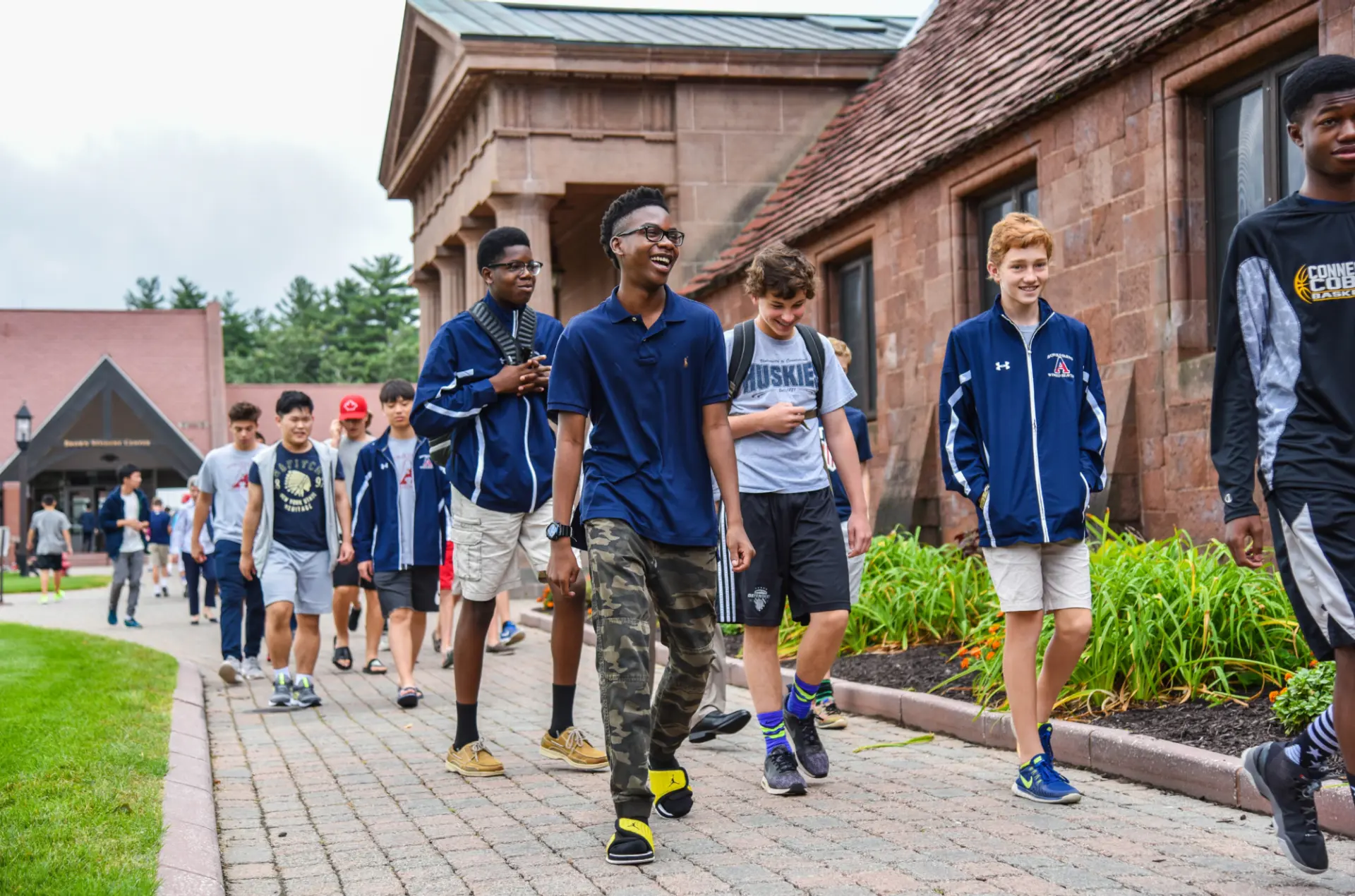Signature Programs
|
|
Boys are relational learners.
At Avon Old Farms, young men explore a liberal arts curriculum designed for them to develop academic interests, to build confidence, and to encourage curiosity which will in turn prepare them for success in higher education.
| poetry recitation contest |
|---|
|
Every student memorizes and recites a poem each year as part of the school-wide poetry recitation contest. Students compete at each grade level, and the competition finals occur on the day before spring break with a representative from 9th through 12th grade. |
| EVANS HISTORY INITIATIVE |
|
Sponsored by Chris Drew '85, P'17, P'18 and his family and named for legendary history teacher Peter M. Evans, P '98, the Evans History Initiative brings renowned historians to campus and is preceded by a series of teach-ins led by members of the history department in preparation for the visit. In recent years, the Evans History Initiative has featured Erik Larson, Lee McIntyre, Ramita Navai, and Dexter Filkins. |
| ADVANCED INDEPENDENT STUDY |
|
Students have used the Advanced Independent Project program to pursue their specialized interests as their afternoon activity. Recently, two students conducted a study of pollination on campus by performing genetic sequencing on various flora based on pollen samples collected from bees. |
| POST-AP Mathematics COURSES |
|
The math curriculum extends beyond the Advanced Placement program to offer courses in Linear Algebra, Differential Equations, and Multivariable Calculus on a rotational basis. In this way, talented math students are able to challenge themselves with topics of study that are typically featured at the collegiate level. |
| POST-AP Computer Science: DATA STRUCTURES |
|
Students tackle real world problems by reasoning about data structure choices, choosing appropriate implementations, and analyzing the costs associated with these choices. Students will learn to write, debug, and test large programs systematically. The major topics within the course include: Recursion, Abstraction, Problem Solving, Software Design, Sets, Linked Lists, Stacks, Queues, Trees, Heaps, Sorting Algorithms, Graphs, and Hashing, with exposure to complexity and algorithm analysis. |
| Global Security Pathway |
|
In our Global Security Pathway, students pick one of the following courses in their junior year (Intro. to Econ. & Bus., World Wars & Global Security/Post 1945 & Global Security, AP World, AP Macroeconomics, AP Environmental Science) followed by a capstone International Relations/Contemporary Global Security class senior year. Students who demonstrate exceptional work in this pathway receive special recognition. |
| A CHANCE TO SEE THE WORLD |
|
Students will have the opportunity to participate in an international spring break trip abroad during their time at Avon. In recent years, groups have experienced Greece, Italy, and Spain. These trips are open to all Avon Old Farms students. |
| NATIONAL ARTS HONORS SOCIETY |
|
For more than 40 years, the National Art Honor Society programs have provided national recognition and opportunities for students who exhibit outstanding scholarship in the visual arts, and for their teachers. In this time of uncertainty and potential isolation, connecting and acknowledging outstanding visual arts students is more imperative than ever. Avon Old Farms participates in the NAHS and thereby provides students, faculty, school, and community with invaluable benefits—including peer recognition, leadership growth opportunities, college and career preparation, recognition of the AOF art program, and so much more. |
| THE RIDDLERS |
|
Named after the school’s founder, Theodate Pope Riddle, the Riddlers are the top choral ensemble at Avon Old Farms School; the Riddlers are selected through a competitive audition process and have progressed through the various stages of choral training. The Riddlers’ repertoire is extensive and includes medieval chant, renaissance polyphony, romantic part songs, folk songs, and contemporary classical music. The Riddlers rehearse and perform independently and with the school’s larger choral ensembles. They travel for performances at major concert venues in New York City and Boston and have recently toured internationally in Ireland, Greece, Canada, France, Costa Rica, and Austria. |
View the 2025–26 Course Catalog
Where Next?
|
|

